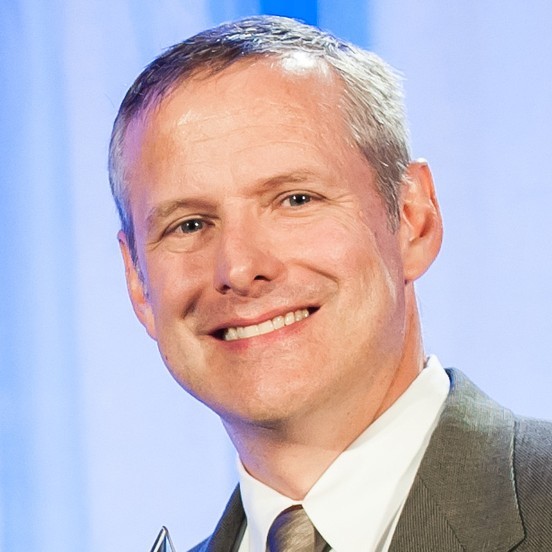In Memory of Eric Montross, and a Reach Beyond Basketball
By David Glenn
Eric Montross was a mountain of a man.
For those who first encountered him from afar, his superhuman size emanated as his most obvious quality. There are only so many 7-foot, 250-pound people, after all.
Those fortunate enough to get closer to Montross, though, gradually discovered that even the gigantic gift he received via his DNA ultimately paled in comparison to the loving nature and self-made superpowers he cultivated, personified and shared with countless others: kindness, generosity, charity, loyalty, intellect, humor, authenticity and much more.
Magically, even though his extraordinary size and impressive basketball acumen (first as a player, then as a broadcaster) enabled and sustained Montross’ prominent place in the American sports world over the last 35 years, his impact eventually extended well beyond basketball and in a truly international manner.
On the court, during his junior season (1992-1993) at North Carolina, Montross became a first-team All-ACC player, a consensus All-American and a national champion.
Off the court, during his senior year at UNC, while repeating as an All-ACC and All-America selection, Montross became a first-team Academic All-American … and continued his habit of visiting patients at UNC Children’s Hospital. He became especially close with 15-year-old Jason Clark, a passionate Carolina fan fighting cancer, and together they created a list of potential ways to improve the lives of young patients, especially those who required extended stays.
Soon after Clark’s death, and in his memory, Montross and his amazing wife, Laura, created (in 1995) an annual Father’s Day basketball camp that ended up raising almost $2 million for UNC Children’s Hospital. Almost three decades later, recent contributions and donations to this ongoing cause went toward a makeover of its original project from 28 years earlier: The Jason Clark Teen Lounge and Game Room.
While it’s easy to forget that Montross’ eight-year professional career started very impressively (drafted #9 overall in 1994, he was the Boston Celtics’ starting center and made the NBA’s All-Rookie team) before being derailed by injuries, it’s more important to remember that, after returning to Chapel Hill, he continued his efforts to impact the world, even beyond basketball.
While working as the UNC men’s basketball color commentator for the Tar Heel Sports Network and as a popular, smiling, kind-hearted gentle giant of a fundraiser for UNC’s Rams Club, he co-founded (with Jackie Kaufman and Dr. Jacob Lohr) Vaccine Ambassadors, a Durham-based organization that funds the purchase and delivery of high-quality vaccines and related supplies and services for children and families in Latin America and the Caribbean.
Since 2015, Vaccine Ambassadors has provided almost 1 million life-saving vaccines, covering 12 diseases, including those for routine childhood vaccinations and emergency vaccinations during natural disasters and other humanitarian crises. The people who have benefited from this organization’s great work include those from wide-ranging places such as Antigua and Barbuda, the Bahamas, Barbados, Colombia, Dominica, Haiti, Saint Lucia, Saint Maarten, Saint Vincent and the Grenadines, Suriname and Venezuela.
Although these delightful details regarding Montross’ beyond-basketball contributions to the world would have been difficult to predict with any specificity decades ago, there were superhero-style signals even from his teenage years indicating that he was not just another prep All-American basketball player.
For starters, Montross definitely took the proverbial “road less traveled” as a recruit.
As a prep star in Indiana, where legendary IU coach Bob Knight already had won three national championships (1976, 1981, 1987), Montross faced intense local pressure to play for the Hoosiers. Meanwhile, both his father and grandfather had been basketball players and Michigan Men; Jake Townsend Sr., Eric’s grandfather, was an All-American for the Wolverines.
Montross’ finalists were Michigan, Indiana, Duke (under Mike Krzyzewski, the Blue Devils had been to the Final Four in 1986, 1988, 1989 and 1990) and, of course, UNC.
For the McDonald’s All-American Game in April 1990, the top high school players from across America were brought to Indianapolis, Ind. Montross was a player-host of sorts, having starred at Lawrence North High School right there in Indianapolis. The other prep stars included 7-foot-6 Shawn Bradley (BYU), Grant Hill (Duke), Ed O’Bannon (UCLA), Derrick Phelps (UNC), Brian Reese (UNC) and Rodney Rogers (Wake Forest).
At one point, the McDonald’s All-Americans were asked to introduce themselves, one by one, with brief comments in a group setting that also included some of the event’s organizers and other adults. In 1990, although some players knew each other, the summer travel circuit had not yet reached the point where almost everyone was already on a first-name basis.
Quickly, the patterns became obvious. With only slight variations, the player would state his name, his high school, his hometown, some personal and/or team accomplishments or statistics, then perhaps a favorite sneaker, an NBA idol or a famous basketball venue he had played in or otherwise experienced.
Then it was Montross’ turn.
“Hi. My name is Eric Montross. I’m from Lawrence North High School, right here in Indianapolis.”
(Pause.)
“And I enjoy nature. I really love nature.”
With that, there was laughter. Lots of laughter. As Montross remembered the story, even some of the adults were laughing. He said they weren’t mocking him, and they weren’t laughing in a demeaning way. He just thought everyone was caught off-guard.
Montross wasn’t joking. He was an avid outdoorsman. He loved fishing. (UNC teammate Travis Stephenson later became a frequent fishing partner during their playing days in Chapel Hill.) One of Montross’ favorite authors was the novelist and short-story writer Louis L’Amour, whose themes often included adventure, the great outdoors and the Western frontier.
Montross simply had wanted to share something authentic about himself, and — even at 17 years old, even while surrounded by mostly strangers — he didn’t really think about whether he was breaking from others’ around-the-circle, basketball-centric introduction mold.
As with his college decision, which might have paralyzed others, Montross was very comfortable in his own super-sized shoes, clearly happy to march to his own drummer.
(Quick side story: After Phelps and Reese told fellow Class of 1990 UNC signee Pat Sullivan, now an assistant coach for the Tar Heels, about the unforgettable “I really love nature” quote from Indianapolis, many of Carolina’s players called Montross “Nature Boy” during their time as his college teammate.)
While highly intellectual and analytical, Montross also had a great sense of humor. Once asked about his various charitable endeavors, his loving marriage with Laura and his SuperDad status in the eyes of their children, Sarah, Andrew and Megan, Eric offered a typical, self-deprecating reply.
“I would love to say that more people come up to me and say, ‘Eric Montross, you are an all-around good guy.’ Instead, it’s usually, ‘I was there when you were bleeding against Duke! That was awesome!’”
Alongside the Tar Heels’ 1993 NCAA title, of course, the 1992 Duke-UNC game in Chapel Hill always will be a legendary part of Montross’ basketball-related legacy.
Feb. 5, 1992, should be remembered, for all of eternity, as Eric Scott Montross Day.
The archrival Blue Devils had come to Chapel Hill with a cocky attitude, an unblemished (17-0) record and the #1 national ranking. Thanks in large part to the electrifying and unflinching efforts of Montross, the Blue Devils left with a bitter 75-73 defeat and a bundle of sore muscles.
In 28 inspirational minutes, Montross compiled 12 points, nine rebounds, three blocks and two steals. The dramatic interruption to that performance came not with halftime but with Montross’ entirely calm, mid-game departure for locker-room stitches, complete with blood dripping down his cheek but also an Arnold Schwarzenegger-style “I’ll Be Back” look on his face.
Legendary UNC coach Dean Smith, the son of educators and a thoughtful, high-IQ gentleman much like Montross, once had an interesting observation that never gained traction in the basketball world but seems perfectly applicable here.
Smith looked at the typical college basketball roster, with its various columns for names, positions, heights, weights, hometowns and high schools, etc., and thought that the height category was overrated and sometimes even misleading. He argued, correctly but ultimately without success, that a player’s reach would provide a much more accurate description of his ability to shoot over opponents, block shots, grab rebounds and otherwise impact the game.
What good is great height, after all, if you can’t do something special with it?
There’s nothing wrong with most of the numbers that are meaningful parts of Eric Montross’ inspirational story: the 7-0 height, the 250 pounds, the uncommon “00” on his UNC uniform, the eight years in the NBA, the 18 years as a UNC broadcaster, his (sadly) 52 years on Earth, the magical 1993 season, the 1 million vaccines, the $2 million to help young people fighting dreadful diseases while at UNC Children’s Hospital.
Just try to remember that, in the end, Montross’ truly stunning reach — while far more difficult to measure and forever unlisted on the all-time UNC basketball roster — was perhaps his greatest gift … and one that, in various ways, will allow his fundamental kindness and his wonderful legacy to live forever.
 David Glenn (DavidGlennShow.com, @DavidGlennShow) is an award-winning author, broadcaster, editor, entrepreneur, publisher, speaker, writer and university lecturer (now at UNC Wilmington) who has covered sports in North Carolina since 1987.
David Glenn (DavidGlennShow.com, @DavidGlennShow) is an award-winning author, broadcaster, editor, entrepreneur, publisher, speaker, writer and university lecturer (now at UNC Wilmington) who has covered sports in North Carolina since 1987.
Chapelboro.com does not charge subscription fees, and you can directly support our efforts in local journalism here. Want more of what you see on Chapelboro? Let us bring free local news and community information to you by signing up for our biweekly newsletter.


